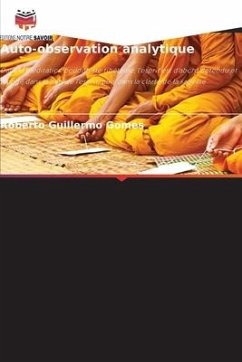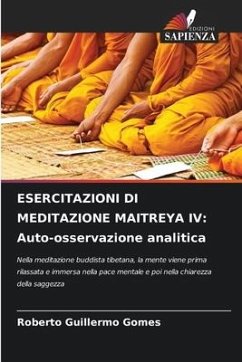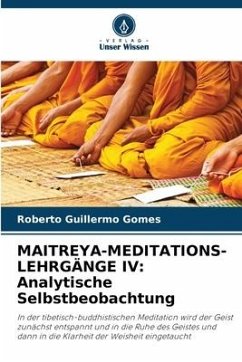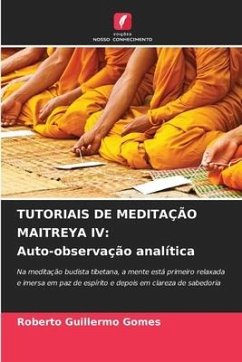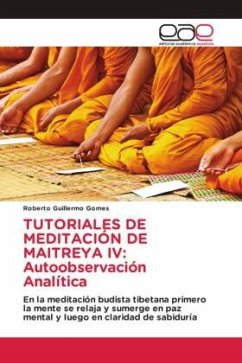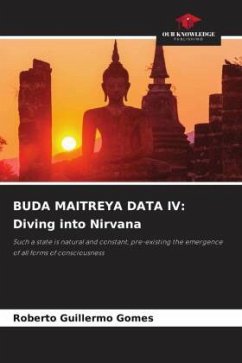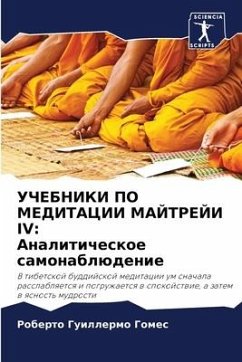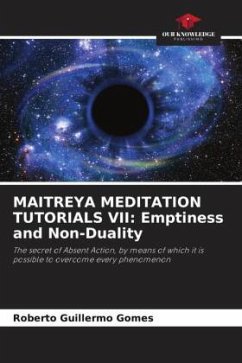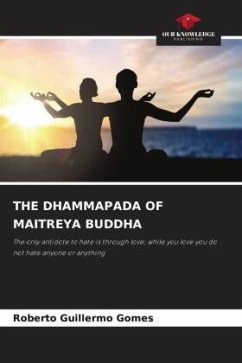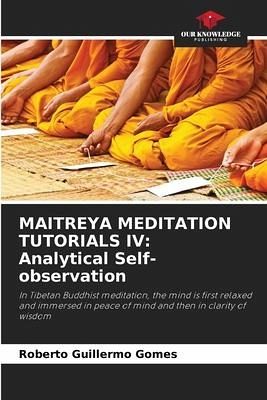
MAITREYA MEDITATION TUTORIALS IV: Analytical Self-observation
In Tibetan Buddhist meditation, the mind is first relaxed and immersed in peace of mind and then in clarity of wisdom
Versandkostenfrei!
Versandfertig in 6-10 Tagen
40,99 €
inkl. MwSt.

PAYBACK Punkte
20 °P sammeln!
In Tibetan Buddhist meditation we find first the effort of relaxation to immerse the mind in the clarity of mental peace and then in the clarity of wisdom through analytical meditation. Thus it is possible to understand the essence of illusion of all phenomena and of the mind itself. This makes it possible to undo attachments to emotional attachments and aversions, cleansing the inner subconscious and freeing the conscious from all past conflict. It is not a matter of repeating a simple technique, but of carrying out a deep self-examination at the level of self-criticism, maintaining the attit...
In Tibetan Buddhist meditation we find first the effort of relaxation to immerse the mind in the clarity of mental peace and then in the clarity of wisdom through analytical meditation. Thus it is possible to understand the essence of illusion of all phenomena and of the mind itself. This makes it possible to undo attachments to emotional attachments and aversions, cleansing the inner subconscious and freeing the conscious from all past conflict. It is not a matter of repeating a simple technique, but of carrying out a deep self-examination at the level of self-criticism, maintaining the attitude of simple observation.Through analytical meditation, one by one the thoughts follow one another, normally, but they are attentively observed by the conscious and as they arise, they dissolve in the unconscious, without causing subsequent reactions. The subject, understanding that the phenomena and the mind itself are in essence illusory, manages to remain detached from the continuous flow of his own thoughts and perceptions. The work done by attention in analytical meditation is similar to that of the Vipassana technique.



